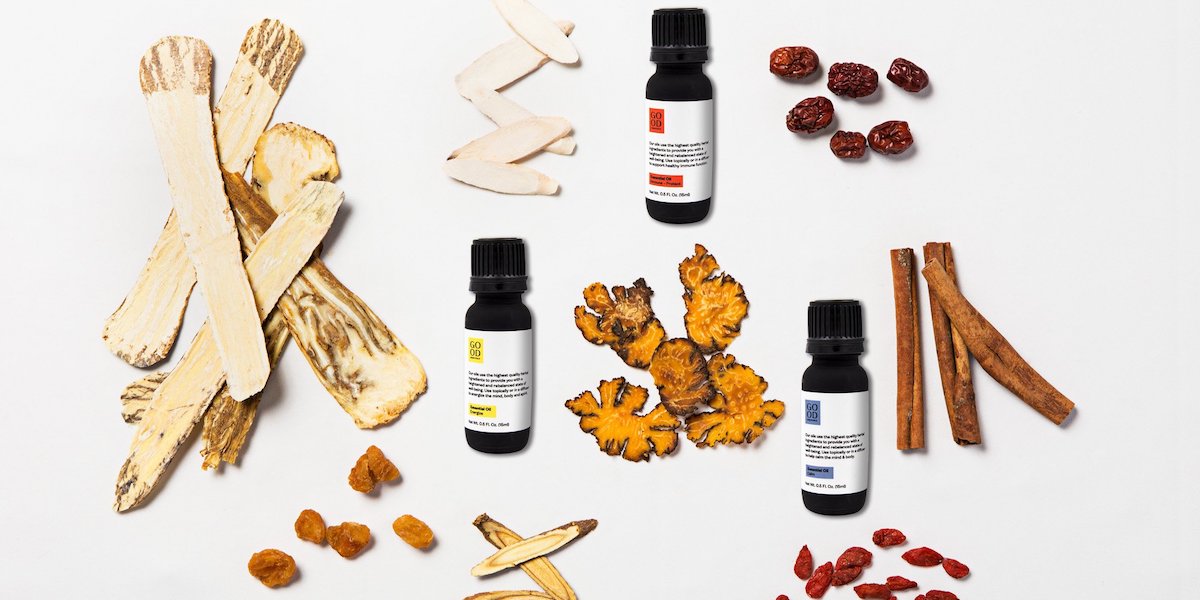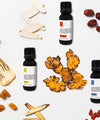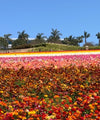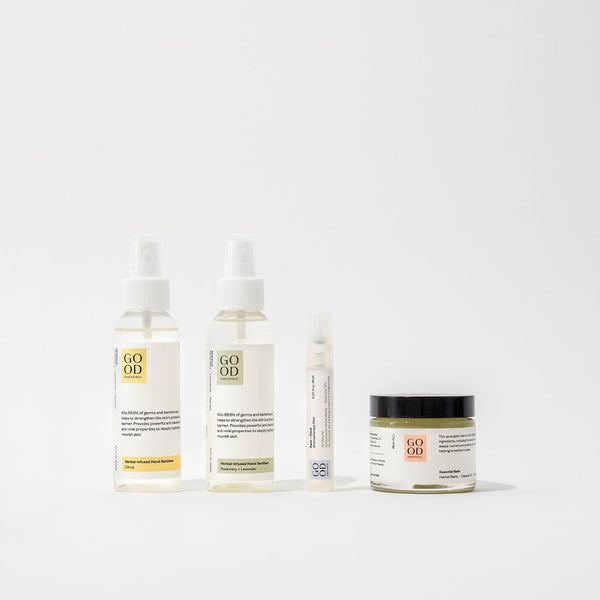Recent Post
8 Best Essential Oils and Herbs for
Jun 14, 2023

Jenelle Kim
Sep 06, 2023
History of Essential Oils
Although Ancient Egyptians are given credit for first using essential oils, the Chinese began using them around the same time period. Both the Egyptians and the Chinese used essential oils for medicinal purposes, especially to promote physical wellbeing. The Chinese pioneered expanding the use into other areas of alternative medicine, such as applying the oils topically during acupressure, or burning them while performing massage therapy practices. Throughout history, essential oils were also used for nonmedicinal reasons, such as when they were burned as part of religious tribute rituals.
How Are Essential Oils Made?
When raw materials, either an entire plant or a select portion such as the leaves or roots, are introduced to a solvent, they begin to dissolve. This liquified version of the plant is what we call essential oils.
There are many methods for carrying out this oil extraction process, but the most popular include:
- steam distillation
- solvent extraction
- carbon dioxide extraction
- maceration
- enfleurage
- cold press extraction
- and water distillation.
The method of extraction highly affects the quality of the essential oil produced. The best method of extraction varies from plant to plant because different levels of heat and pressure are used in different extraction processes.
For example, cold press extraction is far better than enfleurage when obtaining oils from citrus fruit peels. During an enfleurage extraction, the peels would be layered between natural fats to withdraw oil, but during cold-press extraction, the fruit peels are pierced and squeezed. This is not only more effective at extracting the oil, but it produces a much higher quality oil with stronger therapeutic benefits as well.
What Are Therapeutic Grade Essential Oils
While the therapeutic benefits of essential oils abound, “Therapeutic Grade” is a descriptive or marketing term often used by essential oils companies to describe the quality of their product. However, there is no organization officially overseeing essential oil quality standards. Any term used to “grade” or “certify” essential oils is simply designed to help sell that oil. Instead, look for oils that are expert-approved.
The Importance of Expertise in Developing the Best Essential Oils
True essential oil experts know the importance of sourcing the best raw materials. It takes years of studying to acquire the skillset to properly access plants for potential therapeutic value. One of the first things all experts consider is the location from which the plant was grown. They also take note of the specific variety of plant, the fertility of the soil, altitude, and climate it was grown in, the cultivation process, and how it was handled and stored post-harvest.
Experts also consider any genetic differences in the plant, such as whether it was grown organically and whether it was extracted from a population or grown from a clone. Because the chemical composition of the natural material used for essential oils is so important, a wide range of factors may be considered. A principle of all plant and herbal medicine is to start with the highest quality ingredients.
A good example of how vastly essential oils can differ depending on the brand is lavender oil. Compare lavender oil from France with lavender oil from any other country and you will notice an immediate difference. As soon as you open the bottle, you will smell a distinct difference in the aromas. You will also probably find the French oil to have a higher therapeutic value. Even when comparing oils from the same country, there can still be variations in quality due to extraction methods and other previously mentioned factors.
How Do Essential Oils Work?
Essential oils are absorbed into the body quickly. When breathed in, the particles are carried through our airways and into the bloodstream. Within minutes your blood will fully circulate your body, carrying the essential oils to each and every molecule. Many essential oils are extremely potent and inhaling them directly is not recommended as it can be overwhelming. Instead, the oils are released into the air, a practice known as aromatherapy. You can purchase products such as diffusers and aromatherapy lamps, or you can dilute the oils yourself with water in a spray bottle and spritz them into the air.
Some essential oils can also be applied topically and absorbed through the skin. Just as some oils are too strong to inhale, most are also too strong to be applied directly and are instead mixed with a gentler oil before being applied. Essential oils are commonly rubbed on the body during therapies such as massage, reflexology, and acupuncture. A few drops of your favorite essential oils can also be added to bathwater or body lotions to absorb the benefits.
Popular Essential Oils and Their Benefits
There are more than 90 types of essential oils that can be utilized for their therapeutic properties. A few of the most popular essential oils include lavender, grapefruit, and cinnamon.
Lavender Oil
Lavender is the most common essential oil and is known to have a calming and relaxing effect. It’s considered a nervous system restorative and is great for anyone suffering from insomnia, panic attacks, a nervous stomach, or a general sense of tension.
Grapefruit Oil
Grapefruit is known to be stimulating to both the mind and body. It will make you feel more alert and active and is believed to rebalance the endocrine system, promoting the proper secretion of hormones.
Cinnamon Oil
Cinnamon is one of the most well-researched essential oils, known to stimulate the immune system. It has strong antiviral, antibacterial, and antifungal properties that can help anyone stay healthier.
Other essentials can be used to relieve headaches, alleviate pain, improve skin, help speed healing from common colds, regulate digestion, and much more. The healing powers of essential oils are well-known. Just make sure you only buy expert-approved products to ensure the oils are of a high enough quality to provide benefits.
Dr. Jenelle Kim’s Bio
Dr. Jenelle Kim, DACM, L.Ac., is the founder and leader formulator for JBK Wellness Labs. Dr. Kim is carrying on the medical knowledge and wisdom of her lineage. Dr. Kim is devoted to integrating the philosophy, medical wisdom, and expertise of East Asia with the advancements of modern life and medicine of the West in order to touch and positively affect the lives of others. Dr. Kim is a Doctor of Acupuncture and Chinese Medicine and is Nationally Board Certified in Herbology, Oriental Medicine, and Acupuncture. She furthered her studies abroad, training with some of the most respected doctors and herbalists of East Asia. Dr. Kim completed extensive training in East Asia under some of the most respected doctors in the field of Oriental Medicine and is the custodian of her lineage’s proprietary Bi Bong® formulas.




